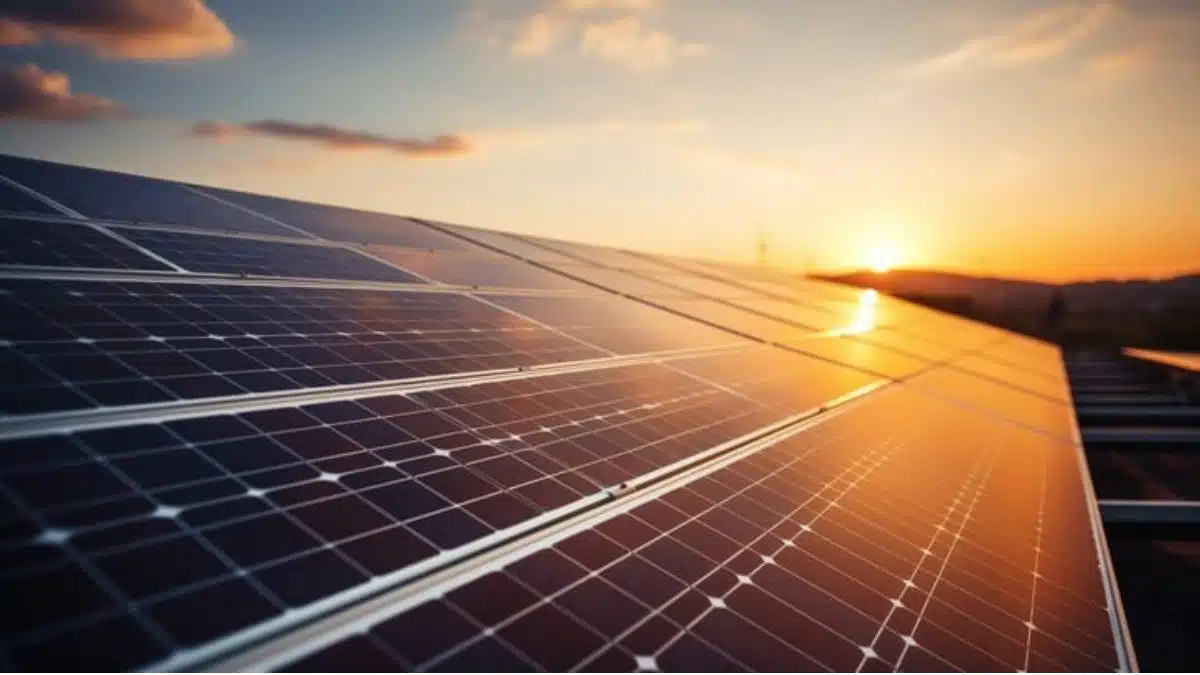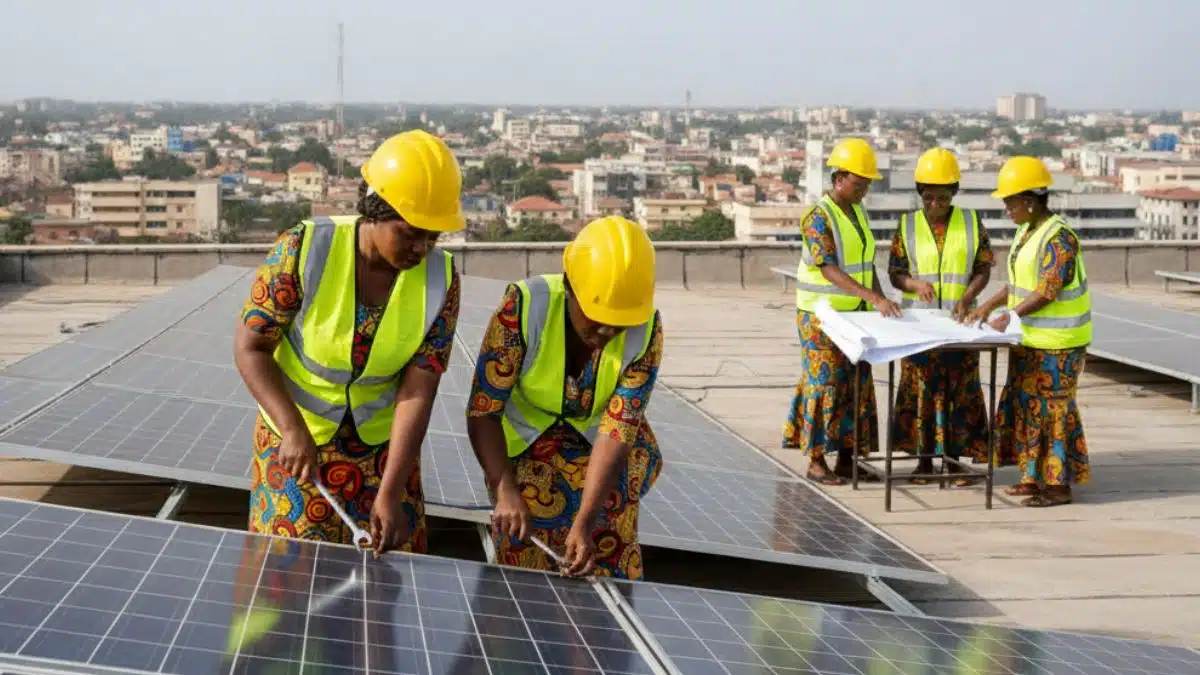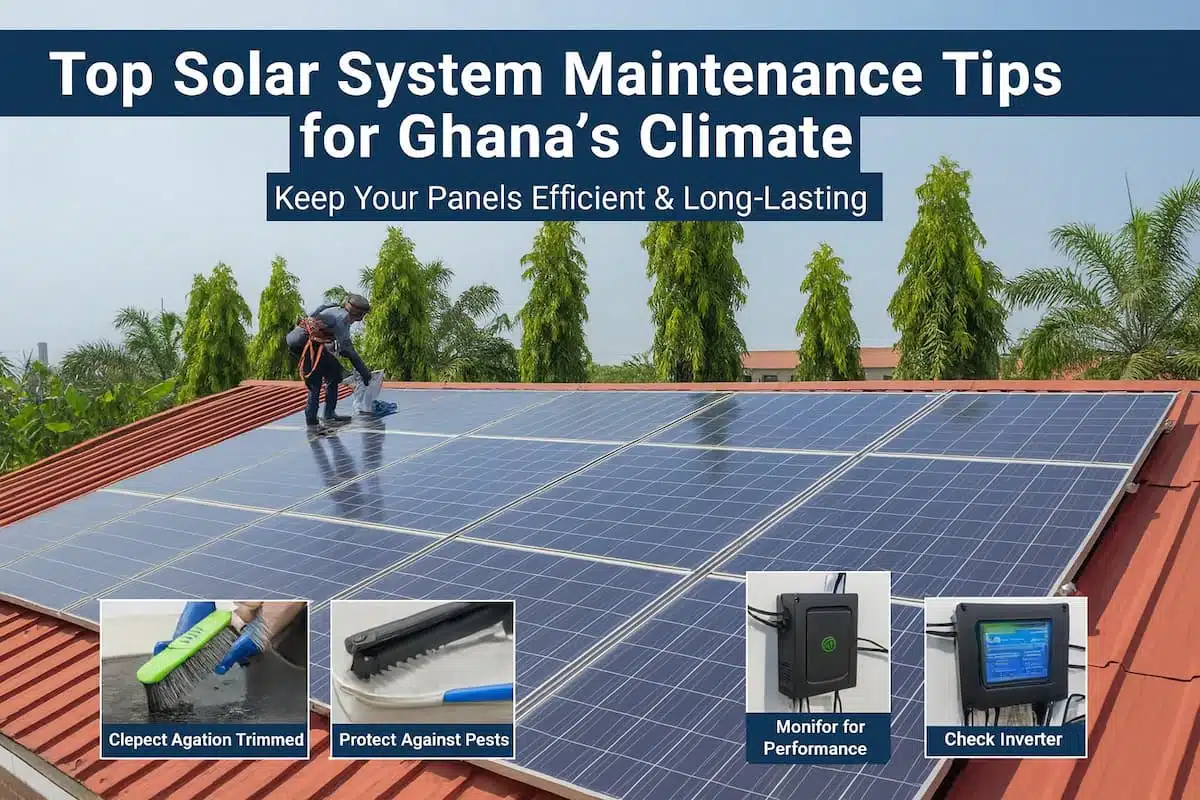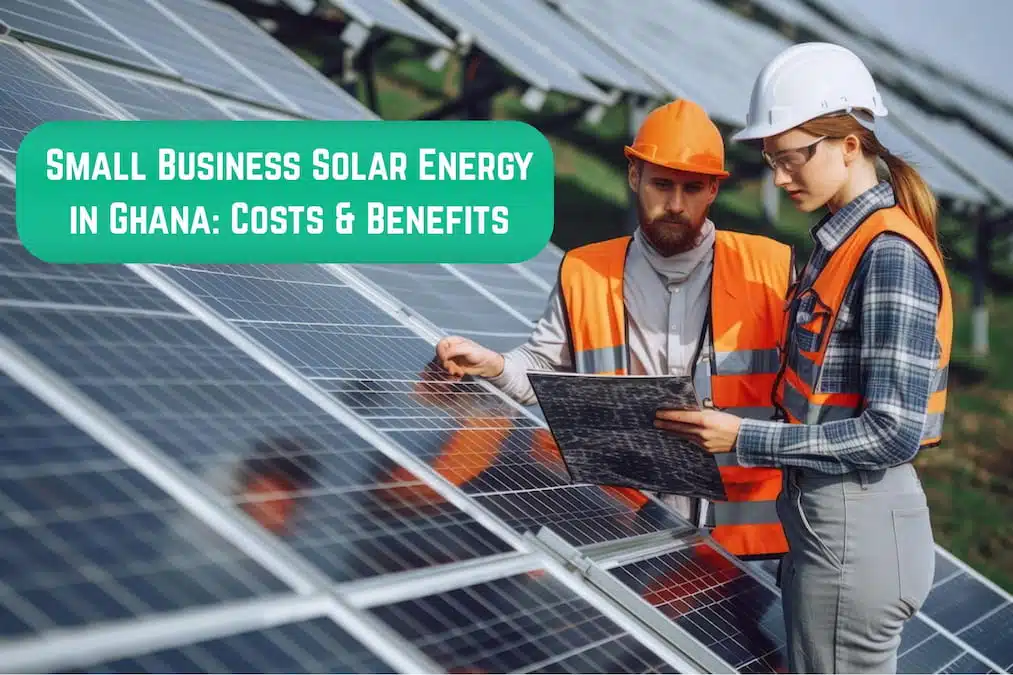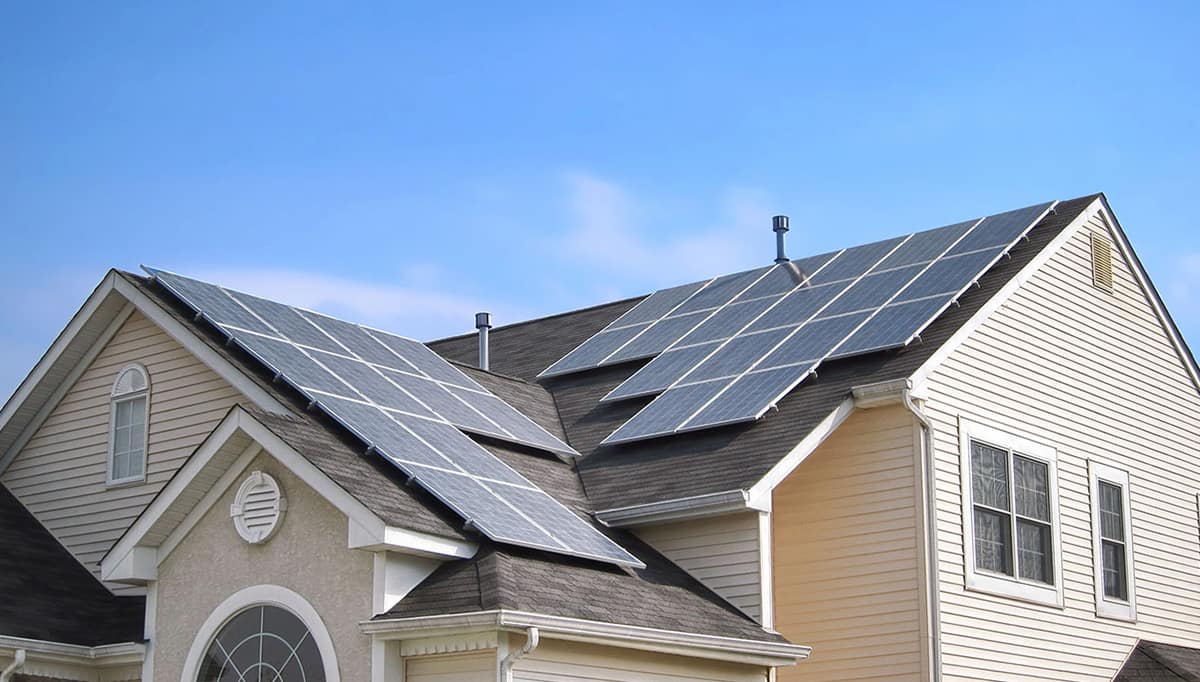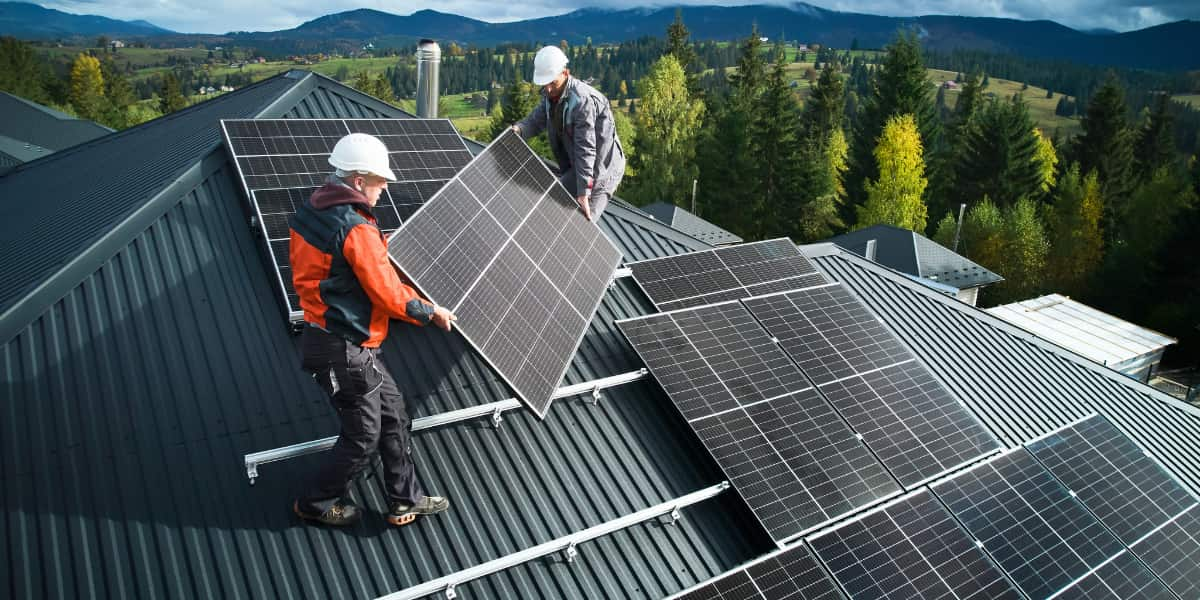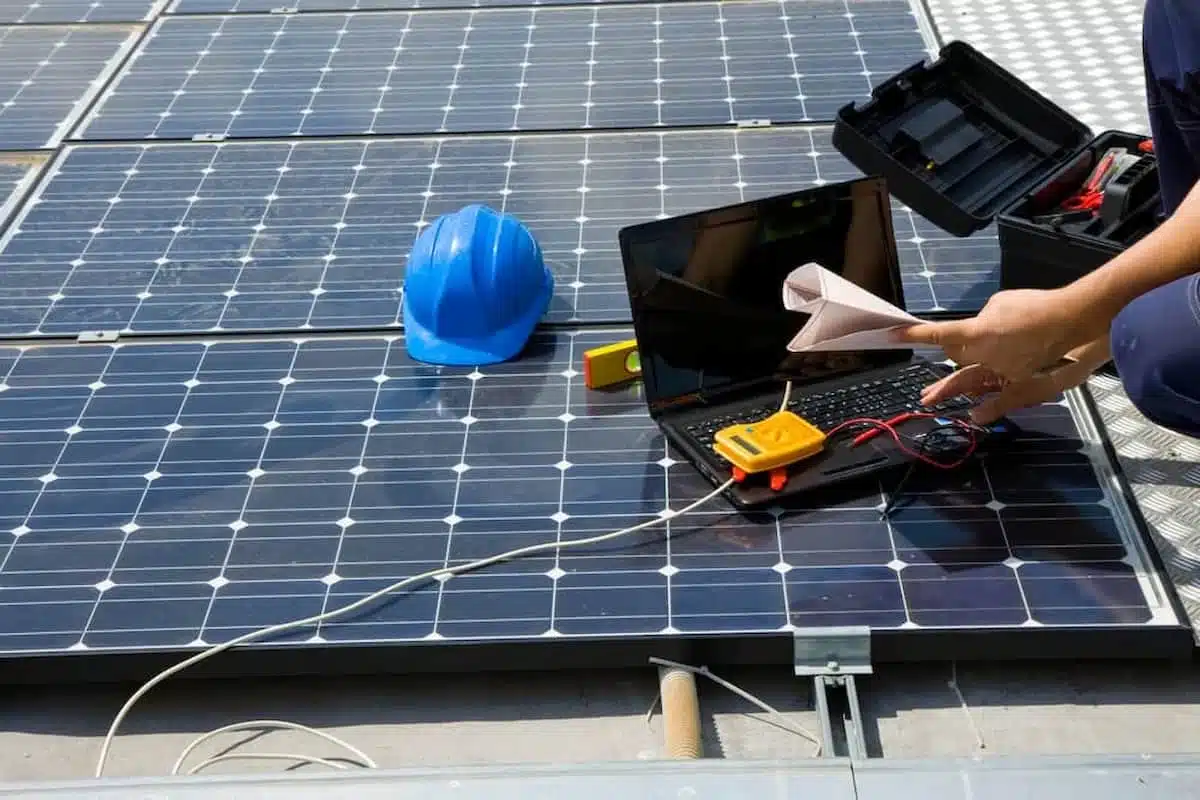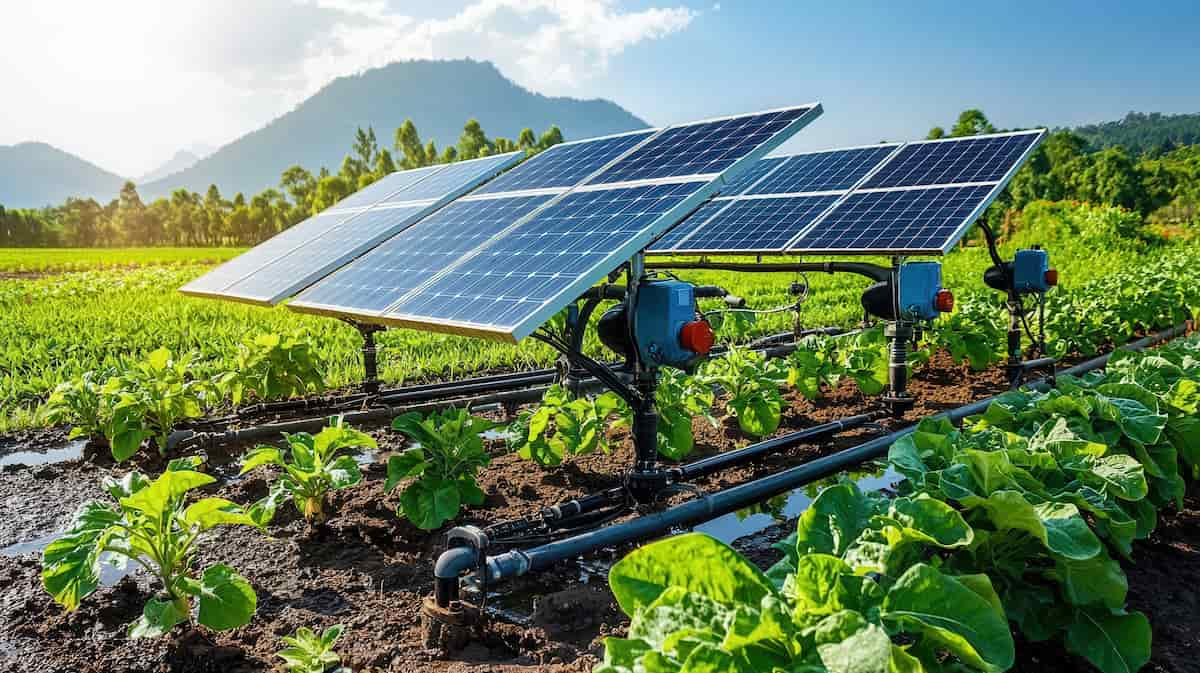Blogs
Best Solar System for Homes in Ghana: Off-Grid vs On-Grid
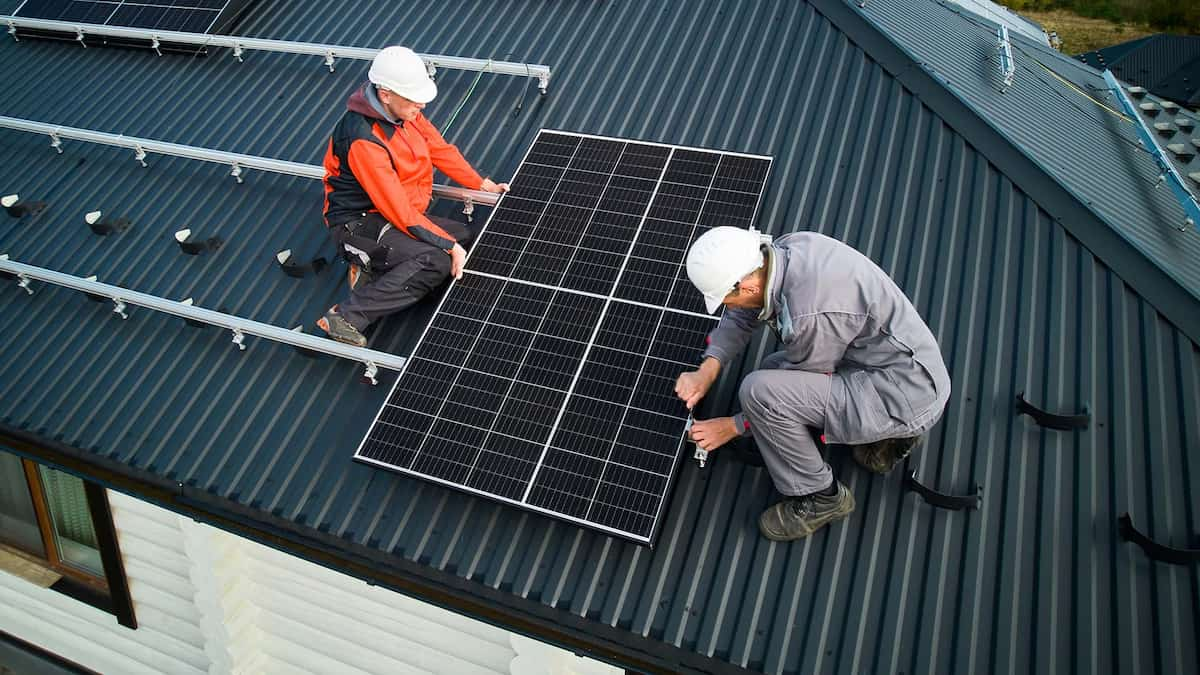
Choosing the best solar system for homes in Ghana is a significant decision. It’s not just about harnessing solar power; it’s about selecting the right system that meets your energy needs and lifestyle. Consider the benefits of off-grid vs on-grid systems to ensure a reliable and cost-effective energy solution.
In Ghana, where sunlight is abundant, the debate often centers around off-grid versus on-grid solar systems. But which one is right for you? This decision can impact not only your monthly bills but also your comfort and energy independence. Imagine having the power to run your appliances even during outages or selling excess energy back to the grid.
Intrigued? Let’s explore these two systems in detail and discover which one aligns with your goals and budget. By the end of this article, you’ll have the clarity you need to make an informed choice. Ready to find out more? Keep reading.
Solar Power Basics
Understanding solar power is crucial before choosing between off-grid and on-grid systems. Solar energy harnesses the sun’s power to produce electricity. It’s a clean, renewable source of energy. In Ghana, solar power offers a sustainable solution for rising electricity demands. Knowing the basics helps in making informed decisions.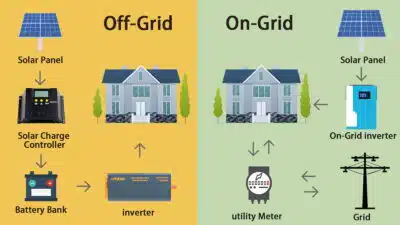
How Solar Energy Works
Solar panels collect sunlight using photovoltaic cells. These cells convert sunlight into direct current (DC) electricity. An inverter then changes DC into alternating current (AC) for home use. This conversion allows appliances to function with solar energy. Solar systems often include batteries to store excess power. This stored power can be used when sunlight is unavailable.
Types Of Best Solar System for Homes in Ghana
There are two main types of solar systems: off-grid and on-grid. Off-grid systems operate independently of the utility grid. They rely on batteries to store energy. This system is suitable for remote areas without grid access. On-grid systems connect to the local utility grid. They provide electricity while feeding excess power back to the grid. This system offers the benefit of net metering, reducing electricity bills.
Choosing between these systems depends on several factors. Consider location, budget, and energy needs. Both systems have their advantages and limitations. Understanding these can guide you to the right choice for your home in Ghana.
Off-grid Solar Systems
Off-grid solar systems are independent. They don’t connect to the national grid. These systems generate electricity using solar panels. Energy is stored in batteries for later use. They provide power during outages. This setup is ideal in rural areas. It offers independence from utility companies.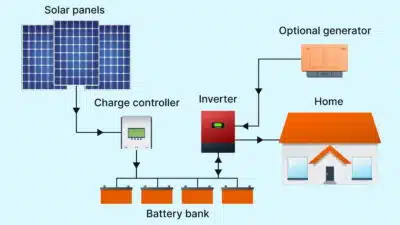
Components And Setup
An off-grid system includes solar panels. These panels capture sunlight. Then, there’s an inverter. It converts solar energy to usable power. Batteries store excess energy. Charge controllers manage battery charge. A backup generator may be needed. Proper setup ensures efficient energy use.
Advantages And Challenges
Off-grid systems offer independence. They work during power outages. They are beneficial in remote locations. Challenges include battery maintenance. Weather can affect performance. Batteries can be costly. Energy storage limits are a concern. Ensuring efficient use is key.
Cost Considerations
Initial costs can be high. Components like batteries are expensive. Maintenance adds to the cost. Long-term savings can be significant. There are no monthly utility bills. Weighing costs and benefits is essential. Choose wisely based on needs.
On-grid Solar Systems
Exploring energy options in Ghana? On-grid solar systems connect to the national grid. This allows seamless electricity flow. Ideal for homes with reliable grid access, these systems reduce electricity bills. They rely on sunlight during the day and grid power at night.
When considering solar energy for your home in Ghana, on-grid solar systems might be an attractive option. These systems are connected directly to the national electricity grid, allowing you to enjoy the benefits of solar energy without the need for battery storage. You might find this appealing if you live in an area with a reliable electricity supply and want to reduce your energy bills.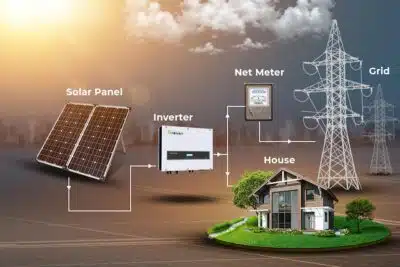
Connection To The Grid
On-grid solar systems are integrated with the national power supply. They allow you to use solar energy during the day and switch to grid power when needed. This seamless connection ensures that you have a constant power supply. If your solar panels generate more electricity than you use, the excess can be fed back into the grid. This setup can be particularly beneficial in urban areas where grid connectivity is strong.
Benefits And Drawbacks
One major benefit of on-grid systems is the potential for lower electricity bills. By using solar power, you can reduce your dependence on the grid, thus saving money. Additionally, you can sell excess energy back to the utility company, earning credits that can offset future costs. However, a drawback is the reliance on the grid. During power outages, your solar system won’t function unless equipped with special inverters. This could be a concern if you live in an area with frequent outages.
Financial Implications
Investing in an on-grid solar system can be financially savvy. The initial cost might be high, but savings on electricity bills and incentives like net metering can offer long-term financial benefits. You may also find that the return on investment is quicker in areas with higher electricity rates. However, it’s essential to consider the cost of installation and any maintenance fees. Would the potential savings outweigh these costs for your household? Choosing the right solar system involves weighing these factors. Consider your location, financial situation, and energy needs. What would suit your home best, given your unique circumstances?
Energy Needs In Ghana
Ghana’s energy needs emphasize the choice between off-grid and on-grid solar systems. Off-grid systems offer independence from the national grid, providing flexibility and reliability, while on-grid systems deliver stable power with potential cost savings. For the best solar system for homes in Ghana, the choice depends on factors like location, energy usage, and the need for independence.
Understanding the energy needs in Ghana is crucial when deciding between an off-grid or on-grid solar system for your home. With a growing population and rapid urbanization, the demand for electricity is increasing. Choosing the right solar system can make a significant difference in your energy independence and sustainability.
Current Energy Landscape
Ghana’s energy landscape is a blend of traditional and modern sources. The country relies heavily on hydropower, with the Akosombo Dam as a key contributor. However, this reliance on a single source can be risky, especially during dry seasons. You might have experienced power outages, known locally as “dumsor.” This inconsistency can disrupt daily life and business operations. It highlights the need for a more reliable energy source. Solar energy is gaining traction, offering a cleaner and more dependable alternative. As solar technology becomes more accessible, many Ghanaians are considering it for their homes. But how do you decide whether to go off-grid or on-grid?
Demand And Supply Issues
Ghana faces a significant gap between electricity demand and supply. As more households and industries require power, the pressure on the national grid intensifies. You may have noticed this in the form of sporadic power cuts. These supply issues make a compelling case for home-based solar systems. By generating your electricity, you can minimize reliance on the national grid. This autonomy can save you money and reduce frustration during power shortages. However, the initial investment for solar systems can be daunting. It’s important to weigh this against the long-term benefits of reduced electricity bills and increased reliability.
Renewable Energy Potential
Ghana is blessed with abundant sunlight, making it an ideal location for solar energy. The potential for renewable energy here is vast, and tapping into it could transform how you power your home. Imagine harnessing the power of the sun to run your appliances, charge your devices, and light up your nights. This isn’t just a dream; it’s a viable option that many Ghanaians are already exploring. By investing in solar energy, you’re not only meeting your energy needs but also contributing to a more sustainable future. As the world moves towards green solutions, you have the opportunity to be part of this positive change. So, which solar system suits your home best? Consider your energy needs, budget, and the reliability you seek. Whether you choose off-grid or on-grid, embracing solar energy could be a step towards a brighter, more secure energy future in Ghana. What do you think is the right choice for you?
Environmental Impact
Choosing between off-grid and on-grid solar systems impacts the environment. Both systems offer unique benefits and challenges. Understanding these can help make an informed decision. Let’s explore the environmental implications of each system to determine the best solar system for homes in Ghana. Consider sustainability, energy efficiency, and long-term benefits for your home
Sustainability Benefits
Off grid systems promote energy independence. They reduce reliance on fossil fuels. These systems can function in remote areas without power lines. This reduces the need for infrastructure expansion. On grid systems also offer benefits. They allow excess energy to return to the grid. This supports a more sustainable energy network.
Carbon Footprint Comparison
Off grid systems have a smaller carbon footprint. They rely on renewable solar energy and storage solutions. This means less pollution from traditional energy sources. On grid systems also reduce carbon emissions. They integrate clean energy into the existing grid. Both systems contribute to a cleaner environment. The choice depends on personal energy needs and goals.
Economic Considerations
Choosing between off-grid and on-grid Best Solar System for Homes in Ghana depends on various economic factors. Off-grid systems might require higher initial costs but offer independence from utility bills. On-grid systems can be more cost-effective initially, relying on the electricity grid for backup.
When deciding between an off-grid and on-grid solar system for your home in Ghana, economic considerations play a pivotal role in your decision-making process. Each system comes with its own financial implications that can affect your budget and long-term savings. Understanding these economic factors can help you make an informed choice that aligns with your financial goals and lifestyle.
Initial Investment
The initial investment is often a significant factor to weigh. Off-grid systems typically require a larger upfront cost due to the need for batteries and inverters to store energy. This investment can be daunting, especially if you’re on a tight budget. On the other hand, on-grid systems usually involve a lower initial cost. They don’t require batteries, as they connect directly to the national grid. This can make them more accessible if you’re looking to minimize initial expenses.
Long-term Savings
Consider how much you could save over time with each system. Off-grid systems can lead to substantial long-term savings by eliminating monthly electricity bills. Once you’ve covered the initial costs, you’re mostly free from the grid’s price fluctuations. With on-grid systems, savings often come through net metering. You can receive credits on your bill for any excess energy you produce. This can be a significant advantage if your area supports net metering, allowing you to offset the cost of grid electricity.
Government Incentives
Government incentives can significantly impact your decision. In Ghana, there are initiatives aimed at promoting renewable energy. These can reduce your initial investment or provide tax benefits. Check if there are specific incentives for either off-grid or on-grid systems in your region. It could be the deciding factor in making the switch to solar energy more financially viable for you. As you weigh these economic considerations, think about your current financial situation and future goals. Are you ready to make a larger upfront investment for long-term savings, or do you prefer a lower initial cost with potential savings through grid credits? Understanding these options can help you choose the right solar system for your home in Ghana.
Technical Factors
Choosing the right solar system for your home in Ghana requires understanding technical factors. These factors include infrastructure requirements, maintenance needs, reliability, and efficiency. Each aspect plays a crucial role in deciding between off-grid and on-grid systems. Let’s explore these technical factors in detail.
Infrastructure Requirements
Off-grid systems need more infrastructure than on-grid systems. They require batteries for storing solar energy. These batteries need space and proper ventilation. On-grid systems connect directly to the national grid. This reduces the need for extra equipment and space.
Maintenance Needs
Off-grid systems have higher maintenance needs. Batteries must be checked and serviced regularly. This ensures they function properly. On-grid systems need less maintenance. They rely on the grid for energy storage. This reduces the need for frequent upkeep.
Reliability And Efficiency
Off-grid systems offer independence from power outages. They store energy for use during cloudy days. But their efficiency depends on battery health. On-grid systems provide consistent energy through the national grid. They are efficient but may fail during grid outages.
Case Studies
As more Ghanaians consider solar energy, understanding real-life applications can help you decide between off-grid and on-grid systems. Case studies offer valuable insights into how these systems perform in everyday scenarios. They highlight successes and lessons learned, providing you with practical information to make an informed decision.
Success Stories In Ghana
In Accra, a family transformed their home with an off-grid solar system. Previously plagued by power outages, they now enjoy uninterrupted electricity. Their decision was driven by the need for reliable power and freedom from utility bills. The system has paid for itself within three years, proving its financial viability.
Another success story comes from Kumasi, where a small business switched to an on-grid solar system. The business owner wanted to reduce operational costs and improve sustainability. With net metering, they sell excess power back to the grid, turning energy savings into profits. This setup has enhanced their reputation as an eco-friendly business.
Lessons Learned
One common lesson from off-grid users is the importance of correctly sizing the system. A homeowner in Tamale underestimated their energy needs, leading to frequent battery drain. They learned that accurate energy audits are crucial for off-grid success.
For on-grid users, understanding the local regulations is key. A resident in Takoradi faced unexpected delays when connecting to the grid due to paperwork issues. They advise thoroughly researching the connection process to avoid such setbacks.
Ultimately, choosing the right solar system involves balancing your energy needs, budget, and local conditions. Would an off-grid system offer the independence you desire, or does an on-grid setup better align with your goals? The choice is yours, guided by these real-life examples.
Making The Right Choice
Choosing between an off-grid and on-grid solar system can be daunting. Each option offers unique benefits and potential drawbacks. Understanding these can help you make an informed decision. The right choice depends on your specific needs and circumstances. Let’s explore what you should consider when selecting the best solar system for homes in Ghana, factoring in energy requirements, location, and long-term savings.
Assessing Personal Needs
Start by evaluating your energy needs. How much power does your home use daily? Consider your budget and long-term energy goals. Off-grid systems provide independence from the national grid. On the other hand, on-grid systems allow you to feed excess power back to the grid. This can reduce your energy bills.
Consultation And Planning
Consult a solar energy expert for guidance. They can assess your home and recommend the best system. They help determine the system size and placement. Proper planning ensures efficiency and effectiveness. A detailed plan aids in cost estimation and timeline management. Choose a reliable solar provider to support your journey.
Frequently Asked Questions
What Is An Off-grid Solar System?
An off-grid solar system operates independently from the utility grid. It uses solar panels and batteries to store energy. This setup is ideal for remote areas in Ghana without reliable grid access. It provides energy autonomy, but requires a larger initial investment and proper battery maintenance.
How Does An On-grid Solar System Work?
An on-grid solar system connects directly to the utility grid. It allows homeowners to use solar power and sell excess energy back. This system is cost-effective and reduces electricity bills. However, it doesn’t provide backup during power outages, making it unsuitable for unreliable grid areas.
Which Solar System Is Cost-effective In Ghana?
An on-grid solar system is generally more cost-effective in Ghana. It requires a lower initial investment compared to off-grid systems. Additionally, it offers savings on electricity bills by selling excess power. However, it depends on grid reliability, which may vary across different regions in Ghana.
Can I Switch From On-grid To Off-grid?
Switching from an on-grid to an off-grid solar system is possible. However, it involves additional costs and adjustments. You need to invest in batteries and a charge controller. It’s essential to assess your energy needs and location in Ghana before making this transition.
Conclusion
Choosing between off-grid and on-grid solar systems depends on your needs. Off-grid suits remote areas, offering independence, while on-grid provides reliability. Consider energy consumption, budget, installation costs, and maintenance. Local climate and sunlight availability also matter. These factors will help you find the best solar system for homes in Ghana.
Solar technology evolves rapidly. Evaluate long-term benefits and environmental impact. Both off-grid and on-grid systems help reduce electricity bills and promote sustainable living. Research thoroughly before deciding. Consult experts for guidance. Make an informed choice for your home. Empower your energy future in Ghana with the best solar system for homes in Ghana.









